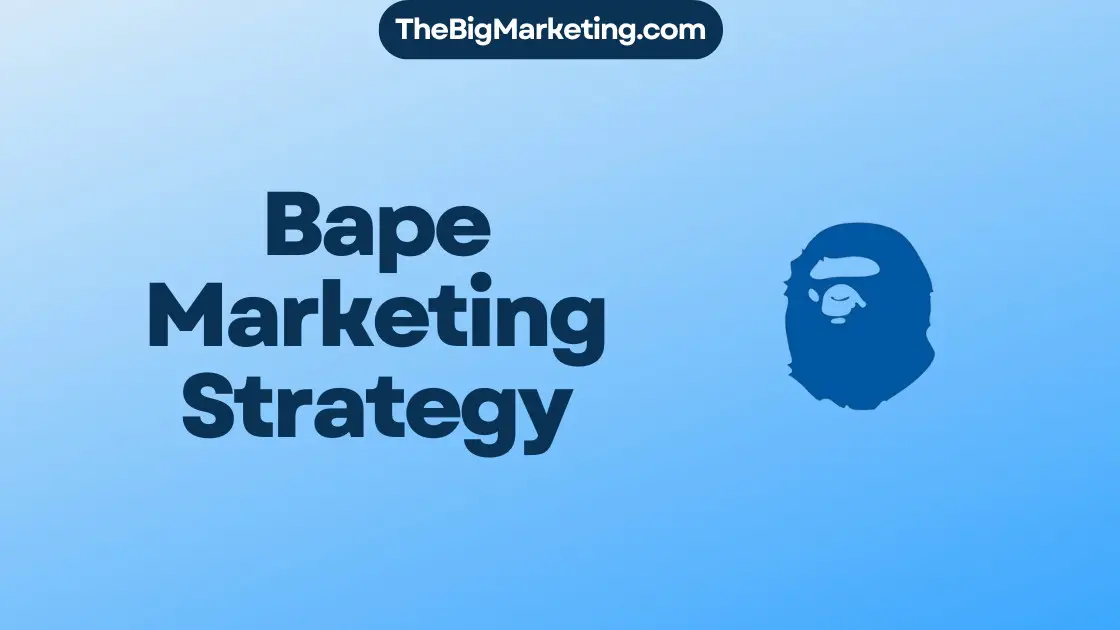Lifestyle marketing is a powerful marketing technique that goes beyond selling products and focuses on selling an ideal or a way of life. It positions a product or service to align with the ideals, aspirations, and aesthetics of the target audience. By immersing themselves in the lives of their customers, lifestyle brands create deep connections and loyalty. They understand their audience’s desires, values, and long-term goals to craft an authentic brand experience.
Key Takeaways:
- Lifestyle marketing positions a product or service to align with the ideals, aspirations, and aesthetics of the target audience.
- It goes beyond selling products and focuses on selling an ideal or a way of life.
- Lifestyle brands create deep connections and loyalty by immersing themselves in the lives of their customers.
- Understanding the target market, effective brand positioning, and meaningful connections are essential in lifestyle marketing.
- Successful lifestyle marketing requires a deep understanding of the target audience and intentional marketing choices.
Lifestyle Marketing Criteria
To implement effective lifestyle marketing, brands need to meet specific criteria that allow them to connect with their target audience on a deeper level. The success of a lifestyle marketing strategy relies on understanding the demographics, psychographics, habits, skills, and hobbies of the target market. By dissecting every aspect of the audience, brands can tap into their desires and aspirations, aligning the brand with their long-term goals.
Defining the target market is a crucial step in lifestyle marketing. It involves understanding the unique characteristics of the audience, such as their age, location, income level, and interests. By knowing who the brand is targeting, marketers can tailor their marketing efforts to appeal to their specific needs and desires.
Another essential criterion for effective lifestyle marketing is knowing where the target audience gets their information. This information helps brands position themselves in the right mediums and channels to reach their audience effectively. Whether it’s through social media, online publications, or other platforms, selecting the right channels is crucial for maximizing brand exposure.
Brand positioning is another essential aspect of lifestyle marketing. It involves understanding the uniqueness of the brand and its value proposition. Brands should identify what sets them apart from the competition and how their products or services can enhance the target audience’s lives. By conveying this positioning effectively, brands can establish a strong connection with their audience.
Ultimately, effective lifestyle marketing requires brands to deeply understand their target audience and ensure that every aspect of their brand aligns with the lifestyles, values, and aspirations of their customers.
Why Lifestyle Marketing Matters
Lifestyle marketing plays a crucial role in building strong and lasting connections with customers. It goes beyond traditional advertising and aims to create a deep sense of loyalty and identity among its audience. So, why does lifestyle marketing matter? Let’s explore the importance of lifestyle marketing to understand its impact on brands and consumers.
Creating Deep Connections and Filling a Void
Lifestyle brands become ingrained in the minds of their customers, forming deep connections based on shared values and aspirations. They fill the void left by failing institutional structures and provide individuals with a sense of meaning and identity in their lives. By aligning themselves with the beliefs and aesthetics of their target audience, lifestyle brands offer a way for consumers to express themselves and find a sense of belonging.
A Different Level of Loyalty and Engagement
Compared to traditional advertising, lifestyle marketing inspires a higher level of loyalty and engagement. By immersing themselves in the lives of their customers, lifestyle brands create a strong emotional bond that goes beyond the transactional relationship. Customers feel a sense of attachment to the brand, making them more likely to choose it repeatedly and actively engage with its offerings.
Meeting Customer Needs and Self-Actualization
Lifestyle marketing goes beyond selling products or services; it aims to meet customer needs and contribute to their self-actualization. By understanding the desires, aspirations, and challenges of their target audience, lifestyle brands can offer solutions and experiences that resonate on a deeper level. This approach empowers customers to live the lifestyle they desire and achieve their personal goals.
Overall, lifestyle marketing matters because it forms strong connections, fills a void in people’s lives, inspires loyalty, and helps customers achieve self-actualization. By embracing lifestyle marketing strategies, brands can create meaningful and lasting relationships with their audience, driving customer satisfaction and business growth.
How to Do Lifestyle Marketing Effectively
To successfully implement lifestyle marketing, brands should follow specific strategies and tactics to create meaningful connections with their target audience. By living their brand story, being authentic, and engaging with customers through various touchpoints, brands can build a loyal following and establish a strong presence in their customers’ lives. Here are some effective lifestyle marketing strategies to consider:
1. Understand Your Target Audience
Before diving into lifestyle marketing, it’s crucial to have a deep understanding of your target audience. Identify their demographics, interests, values, and aspirations to align your brand with their lifestyle. This knowledge will help you tailor your marketing efforts and create relevant content that resonates with your audience.
2. Engage on Social Media
Social media platforms provide excellent opportunities for lifestyle marketing. Identify the platforms that your target audience uses the most and establish a strong presence there. Engage with your audience by sharing valuable content, responding to comments and messages, and fostering a sense of community around your brand.
3. Offer Something Invaluable to Customers
To capture your audience’s attention, offer something of value that relates to their lifestyle. It could be useful tips, exclusive content, special promotions, or access to events or experiences. By providing something valuable beyond your products or services, you establish yourself as an essential part of their lifestyle.
4. Incorporate the Brand into Multiple Aspects of Their Lives
Go beyond traditional advertisements and find creative ways to integrate your brand into your audience’s lives. Sponsor relevant events, collaborate with influencers or like-minded brands, and create partnerships that align with your brand’s values. By being present in different aspects of their lives, you become an integral part of their lifestyle.
5. Cultivate Transparency and Authenticity
Transparency and authenticity are crucial for successful lifestyle marketing. Be open about your brand’s values, practices, and commitments. Show your audience that you genuinely care about their well-being and share your brand’s story in a way that resonates with their aspirations. Authenticity will help build trust and loyalty among your audience.
By incorporating these lifestyle marketing strategies and tactics, brands can create authentic connections with their target audience and foster long-term loyalty. Remember that lifestyle marketing requires careful cultivation, deliberate decision-making, and a genuine commitment to understanding and meeting your audience’s needs.
Examples of Successful Lifestyle Marketing
In the realm of lifestyle marketing, several brands have excelled in connecting with their target audiences and creating immersive brand experiences. Let’s explore some prominent examples of successful lifestyle marketing campaigns:
Marks and Spencer: Luxury Redefined
Marks and Spencer has successfully positioned itself as a lifestyle brand that offers a better standard of living. With a focus on quality, elegance, and sophistication, Marks and Spencer appeals to consumers seeking refined lifestyles. Their marketing campaigns convey a sense of exclusivity and luxury, creating a strong connection with their target audience.
Harley Davidson: Riding on Adventure
Harley Davidson has built a loyal following through its lifestyle marketing efforts. By highlighting the freedom, adventure, and camaraderie associated with motorcycle culture, Harley Davidson has successfully created an immersive brand experience. Their marketing campaigns feature captivating imagery and narratives that resonate with their audience, fostering a sense of belonging and excitement.
Burt’s Bees: Natural Living
Burt’s Bees has positioned itself as a lifestyle brand for individuals seeking a natural and healthy life. Through their commitment to sustainability, eco-friendly practices, and high-quality natural products, Burt’s Bees has captured the attention of environmentally conscious consumers. Their marketing campaigns emphasize the benefits of natural ingredients and embody the values their target audience holds dear.
These brands have effectively embedded themselves within their respective audiences’ lives through consistent and strategic lifestyle marketing. By aligning their values, aspirations, and aesthetics with their target customers, they have successfully connected on a deeper level, establishing strong brand loyalty and fostering meaningful relationships.
What Is Lifestyle Marketing in a Nutshell
Lifestyle marketing, in essence, is a marketing technique that goes beyond merely selling products or services. It involves positioning a brand to align with the ideals, aspirations, and aesthetics of the target audience. Rather than focusing solely on the transactional aspect of business, lifestyle marketing aims to create an immersive brand experience that becomes an integral part of customers’ everyday lives.
To effectively implement lifestyle marketing, brands must have a deep understanding of their target market. They need to know their audience’s demographics, psychographics, and where they derive their information from. This knowledge enables brands to position themselves strategically and effectively connect with their ideal customers.
The essence of lifestyle marketing lies in its ability to create meaningful connections with customers. By immersing themselves in the lives of their target audience, brands can establish themselves as more than just products or services. They become a trusted companion, reflecting and reinforcing the customers’ desired way of life. This level of connection fosters brand loyalty and encourages customers to integrate the brand into various aspects of their lives.
| Benefits of Lifestyle Marketing | Effective Lifestyle Marketing Strategies |
|---|---|
|
|
|
Benefits of Lifestyle Marketing
Lifestyle marketing offers numerous benefits that can significantly impact a brand’s success. By implementing this strategic approach, businesses can gain advantages such as increased brand awareness, enhanced customer loyalty, and higher sales. Let’s delve into the advantages that lifestyle marketing brings to the table.
1. Increased Brand Awareness
One of the key benefits of lifestyle marketing is the ability to target specific customers based on their interests, values, and lifestyles. By understanding the target audience deeply, brands can tailor their marketing efforts to resonate with them on a personal level. This focused approach establishes a strong connection between the brand and its intended audience, resulting in increased brand awareness and recognition.
2. Enhanced Customer Loyalty
Lifestyle marketing goes beyond traditional advertising methods to create a meaningful and immersive brand experience. By aligning the brand with the ideals, aspirations, and aesthetics of the target audience, lifestyle marketing fosters a sense of connection and loyalty. Customers who feel a strong affinity towards a brand are more likely to become repeat buyers and advocates, contributing to long-term customer loyalty.
3. Higher Sales
When brands effectively implement lifestyle marketing strategies, they not only attract customers but also understand them better. By gaining insights into their target audience’s preferences, pain points, and desires, brands can create more targeted and impactful marketing content. This tailored approach resonates with customers, leading to increased engagement and ultimately driving higher sales.
Overall, the benefits of lifestyle marketing are undeniable. From increased brand awareness and enhanced customer loyalty to higher sales, this marketing approach offers a unique avenue to connect with and engage the target audience.
Check out the following table for a concise summary of the benefits of lifestyle marketing:
| Benefits of Lifestyle Marketing |
|---|
| Increased brand awareness |
| Enhanced customer loyalty |
| Higher sales |
Effective Lifestyle Marketing Strategies
Implementing effective lifestyle marketing strategies is crucial for brands to connect with their target audience, increase brand awareness, and drive sales. Here are some strategies that have proven to be successful:
- Sponsoring Events: By sponsoring events that align with the brand’s values and target audience interests, brands can increase visibility and create positive associations.
- Creating Engaging Content: Developing high-quality and compelling content that resonates with the audience helps to establish the brand as a thought leader and builds trust and loyalty.
- Offering Freebies: Providing free samples or exclusive offers creates a positive brand experience and encourages potential customers to try the product or service.
- Participating in Trade Shows: Trade shows offer the opportunity to showcase products, network with industry professionals, and generate leads.
- Creating Partnerships: Collaborating with complementary brands or influencers can expand the reach of both parties and create new marketing opportunities.
- Using Social Media: Having a strong presence on popular social media platforms allows brands to engage directly with their audience, share valuable content, and build a community.
- Offering Free Consultations: Providing free consultations or personalized advice demonstrates expertise, builds trust, and allows brands to showcase their value to potential customers.
- Using Influencers: Partnering with influencers who align with the brand’s values and have a significant following can amplify brand messages and reach a wider audience.
- Hosting Events: Organizing branded events or workshops provides an opportunity to create unique experiences for customers, deepen brand loyalty, and generate buzz.
By implementing these effective lifestyle marketing strategies, brands can build strong connections with their target audience, stand out in a crowded market, and achieve marketing success.
Key Ingredients for a Successful Lifestyle Marketing Campaign
In order to run a successful lifestyle marketing campaign, brands need to incorporate several key ingredients that will help them connect with their target audience and effectively promote their products. By implementing these strategies, brands can create a sense of community, understand their audience, engage with them on social media, incorporate product demonstrations, advertise on lifestyle TV stations, create impactful content, and leverage successful lifestyle marketing campaigns by top brands.
Create a Sense of Community
To successfully engage with their target audience, brands should focus on building a sense of community around their products or services. This can be done through online communities, social media groups, or even hosting events where like-minded individuals can come together and connect. By fostering a community, brands create a loyal following that will not only support their products but also become brand advocates.
Understand Your Target Audience
Understanding your target audience is crucial in crafting a successful lifestyle marketing campaign. Conduct thorough market research to identify the demographic and psychographic characteristics of your audience. By understanding their interests, values, and preferences, brands can tailor their messaging and communication to resonate with their target audience on a deeper level.
Engage with Them on Social Media
Social media platforms provide a unique opportunity for brands to engage directly with their target audience. By actively participating in conversations, responding to comments, and sharing relevant content, brands can build authentic relationships and gain valuable insights into their customers’ needs and desires. Social media also allows brands to showcase their products seamlessly within the lifestyle of their target audience.
Incorporate Product Demonstrations
Product demonstrations are an effective way to showcase how a product fits into a customer’s lifestyle. By highlighting the benefits and features of the product in context, brands can help customers visualize how the product can enhance their daily lives. Product demonstrations can be done through videos, online tutorials, or live events, providing a tangible experience that resonates with the target audience.
Advertise on Lifestyle TV Stations
Leveraging lifestyle TV stations is a great way to reach a broader audience and position your brand within a lifestyle context. By advertising on channels that align with your target audience’s interests and preferences, brands can increase brand visibility and connect with potential customers who are actively seeking content related to their lifestyle and interests.
Create Impactful Content
Creating impactful content is essential for a successful lifestyle marketing campaign. Brands should focus on developing content that is informative, engaging, and aligns with the values and aspirations of their target audience. By providing valuable content, brands position themselves as experts in their field and foster a deeper connection with their customers.
Leverage Successful Lifestyle Marketing Campaigns by Top Brands
Studying and learning from successful lifestyle marketing campaigns by top brands can provide valuable insights and inspiration for your own campaign. Analyze their strategies, messaging, and the way they connect with their audience. By building on what has already proven successful in the industry, brands can create a powerful and effective lifestyle marketing campaign.
| Key Ingredient | Description |
|---|---|
| Create a Sense of Community | Build an engaged community around the brand to foster loyalty and advocacy. |
| Understand Your Target Audience | Conduct thorough market research to identify the interests and preferences of your audience. |
| Engage with Them on Social Media | Actively participate in conversations, respond to comments, and share relevant content on social media platforms. |
| Incorporate Product Demonstrations | Showcase how the product fits into the target audience’s lifestyle through videos, tutorials, or live events. |
| Advertise on Lifestyle TV Stations | Reach a broader audience by advertising on channels that align with their interests and preferences. |
| Create Impactful Content | Develop informative and engaging content that resonates with the target audience. |
| Leverage Successful Lifestyle Marketing Campaigns by Top Brands | Study and learn from successful campaigns to gain insights and inspiration for your own. |
Conclusion
Lifestyle marketing is a powerful and effective strategy that allows brands to connect with their target audience on a deep level. By understanding the values, interests, and lifestyles of their customers, brands can create a sense of community and become a part of their customers’ way of life. This approach goes beyond traditional product-focused marketing and focuses on building meaningful connections.
Implementing lifestyle marketing strategies effectively has numerous benefits for brands. It increases brand awareness by resonating with the target audience and creating a stronger brand presence. Additionally, it helps build customer loyalty, as customers feel a strong connection with the brand and become advocates. Finally, lifestyle marketing drives sales by positioning the brand as the go-to choice for customers who align with the brand’s values and aspirations.
To succeed in lifestyle marketing, brands must invest time and effort in understanding their target audience. By creating engaging content that reflects their values and interests, brands can foster a strong connection with their customers. Additionally, creating a sense of community through social media and other platforms helps customers feel like they are part of something bigger.






